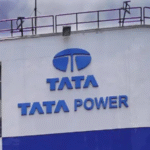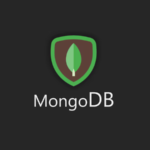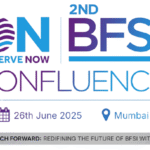International HR Day 2024 – Is Your Workplace Ready for AI? Discover What HR Leaders Think!

The workplace and Workforce have conveniently adopted AI in their routines. According to a report by Nasscom, India ranks first in AI skill penetration with a score of 3.09, driven by higher-than-average compensation and growth prospects.
The question arises, how will the future of the workplace look with AI and technology implementation? Another rising concern is the risk to jobs, as AI and automation dominate every industry. The stakes are really high as predicted by the McKinsey Global Institute, 800 million jobs globally at risk by 2030. On the commemoration of International HR Day, ObserveNow interacted with some of the prominent HR professionals and recorded their responses on ethical concerns attached to technology, AI adoption, the future of the workplace, and more in a candid conversation.
Future of WorkForce & Workplaces!

Anindya Shee, VP HR at Jio, aptly remarks, “We are on the cusp of a singularity where disruptive technology is meeting an aspirational workforce. The result will be workforce models that we have not even thought about yet.” This intersection is driving a transformation that challenges traditional notions of employment and workplace environments.
 Namita Patwari, CHRO at Alembic Pharmaceuticals Limited, emphasizes the shifting definition of the workplace and the workforce. “The definition of workplace is undergoing change and so is the workforce. I see more agile and moonlighting as a concept to be routine down the line few years,” she notes. Patwari envisions a future where employees will not be tied to a single job or workplace. This fluidity in employment will pose significant challenges for HR leaders, who must engage an ever-changing and multifaceted workforce. “Workplaces will be highly open and fluid,” she adds, underscoring the dynamic nature of future work environments.
Namita Patwari, CHRO at Alembic Pharmaceuticals Limited, emphasizes the shifting definition of the workplace and the workforce. “The definition of workplace is undergoing change and so is the workforce. I see more agile and moonlighting as a concept to be routine down the line few years,” she notes. Patwari envisions a future where employees will not be tied to a single job or workplace. This fluidity in employment will pose significant challenges for HR leaders, who must engage an ever-changing and multifaceted workforce. “Workplaces will be highly open and fluid,” she adds, underscoring the dynamic nature of future work environments.
 Vishal Sharma, Global Head of HR at Glenmark Pharmaceuticals, highlights another critical aspect of this transformation: the imperative for continuous learning and mental well-being. “The workforce will be under tremendous pressure to reskill and learn new skills. That would require creating a learning organization,” Sharma explains. The demand for cognitive resources will necessitate measures to reduce distractions and enhance mindfulness. This focus on mental health and well-being will become a cornerstone of organizational culture, ensuring that employees are not only skilled but also mentally resilient. “This will necessitate creating a huge focus in protecting mental health and fostering the well-being of employees,” Sharma concludes.
Vishal Sharma, Global Head of HR at Glenmark Pharmaceuticals, highlights another critical aspect of this transformation: the imperative for continuous learning and mental well-being. “The workforce will be under tremendous pressure to reskill and learn new skills. That would require creating a learning organization,” Sharma explains. The demand for cognitive resources will necessitate measures to reduce distractions and enhance mindfulness. This focus on mental health and well-being will become a cornerstone of organizational culture, ensuring that employees are not only skilled but also mentally resilient. “This will necessitate creating a huge focus in protecting mental health and fostering the well-being of employees,” Sharma concludes.
As we stand at the brink of this new era, it is clear that the future of work will be characterized by unprecedented fluidity, continuous learning, and a heightened emphasis on mental well-being. The roles of HR leaders will become more complex and integral, requiring innovative strategies to manage and engage a workforce that is both aspirational and dynamic.
Excelling with AI at Workplaces
The integration of artificial intelligence into workplaces is reshaping industries and redefining job roles at an unprecedented pace. As Anindya Shee, VP HR at Jio, observes, “AI is straddling a continuum of the value chain from transaction processing, rule-based robotic manufacturing to assisting in complex professional areas like diagnostics in medicine. This will lead to creative destruction with entire industries like traditional branch banking getting upended into a new form and format. The future will be exciting for sure.”
However, as AI takes over routine and predictable tasks, it poses a challenge to the core problem-solving abilities of organizations. Vishal Sharma, Global Head of HR at Glenmark Pharmaceuticals, cautions, “I fear we will create humanly dumb organizations if we do not cultivate a thinking organization. Problem-solving is at the heart of any organization and with the advent of AI, this ability might get diluted.” Sharma highlights the need for a balance, emphasizing, “While we talk about reskilling and upskilling, deskilling will become a new requirement. Organizations will need to focus on deskilling and unlearning strategies to cater to the growing need for reskilling. To remain relevant, adaptability and cross-cultural attitude will have to be fostered and recognized.”
Namita Patwari, CHRO at Alembic Pharmaceuticals Limited, envisions a future where AI is seamlessly integrated into daily operations. “Like smartphones are part of our routine now, so will AI. The functioning of routine and predictable tasks will be fully dependent on AI. Moving forward, the workforce will have roles that are unheard of today. The generative AI will give a great analysis of critical business challenges and possibilities. The workforce will need to learn to make use of these possibilities and convert them into business success.”
The successful integration of AI into workplaces will require a blend of technological proficiency, adaptability, and continuous learning. The future of work promises to be both challenging and exciting, with AI driving significant transformations across various sectors. While the discussions are ongoing and never-ending, ObserveNow proudly appreciates the role of HR in every organization and its efforts toward ensuring a workplace that is best to innovate, excel, and grow.
















